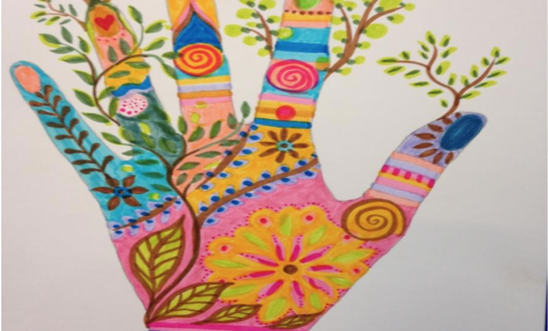
Clean hands, clean conscience?

The ache of being apart
We are in a time of global upheaval and reflection. It was not chosen. Just as refugee people do not choose the ravages of war, unjust regimes or inhumane treatment that force them to leave their homelands. Our experience of this pandemic is far from equal. No matter what is said we are far from being ‘in it together’. The emergency measures of locking down countries and closing borders has led to even more suffering for many refugee people and those seeking asylum.
However, there is one aspect of this pandemic that I think can allow all humans to reflect on the fragility of our relationship to the planet and each other. For so many people around the world and here in the UK the toll of loss of life has been high and, as the weeks of lockdown go on, many feel the ache of what it means to apart or be distanced from family - even with the presence of technologies like video call. In this time the empathy porthole has surely opened as we all long for families to be together again.
We all need our families
My work has been largely with children and families and since I began writing in community and theatre settings, also in my work on novels for young people, the plight of the unaccompanied child refugee has entered my stories again and again. What I am most interested in exploring is how young refugee children can be offered opportunities to progress and build new lives, and be treated with respect and humanity.
It was with great joy that I was able to chart the journey of Jide Jackson ( Artichoke Hearts 2011) a refugee child from the Rwandan genocide to grow up to become a volunteer doctor in Rwanda (Tender Earth 2019). In another story I imagined a meeting between the ghost of George Orwell and Amir a thirteen year old boy from Syria, who has been in the country for one year and demands that his story is heard at the centre of power. People are made refugees - it is not a stagnant identity. To progress, we all need nurturing and to go beyond surviving and to do that, our families are our root support.
The Home Office still denies family reunion
While governments struggle to deal with the new conditions that this pandemic has brought, the plight of refugee people has not gone away. Despite commitments to review the rules after pressure from the #FamiliesTogether coalition and cross party and parliamentary support - including Lord Alf Dubs (himself a Kindertransport refugee) - the Home Office still denies many refugees living in the UK the right to reunite with their close family.
The right for refugee family members to be reunited is a central test of our common humanity. All of us that have experienced some upheaval in our lives due to this global pandemic and are looking forward to re-connecting with our families, should be able to better imagine and empathise with the plight of refugee people. Under current law, they are deprived of that vital contact. Having faced enormously traumatic journeys they too long and need to be re-united with surviving family, should they be found.
Let this time when we cannot hold hands, be one in which our imagination and empathy brings us all closer together. After all, history has shown and is showing us that even in the inhumane conditions refugee people face, hands are easier to clean than a communal conscience.
Sita Brahmachari is an Amnesty Ambassador and writer in residence at Islington Centre for Refugees and Migrants
'The Key'
The Key for Islington Centre for Refugees and Migrants
This is the key that unlocks the door to my future,
My dreams and desires, my heart, my life
This key will be for my access,
To open my mind, expand my brain…
It is the key to my imagination
This key means success
This is the key to my personal story,
The key that unlocks my diary
My small history
The key that leads me on my way
To my family, to my spirit, to begin my journey.
This key is for my own door, my rented car, the car I need for my journey
This is the key to writing my first book,
The key to my cupboard
To lock things away and keep them safe
The key to my past and
A way back to the future
This door leads to the Islington Centre for Refugees and Migrants
To my classroom. It is a doorway in to school –
To new friendships,
A quiet place
It is a doorway to go in to, and come out from.
A doorway to the sounds of voices learning to live again
Speaking, painting, drawing, writing, dancing,
healing
A doorway to and from people’s stories that should be told.
This is a doorway to strength of mind.
One key…many doors.
Keep this key safe – you, yourself may need it one day.
This is a Communal poem from members of Islington Centre For Refugees and Migrants art and writing class run by artist in residence Jane Ray and Writer in Residence Sita Brahmachari.
More poems and art, and the work of Islington Centre For Refugees and Migrants can be found in this new online exhibition for Refugee Week.